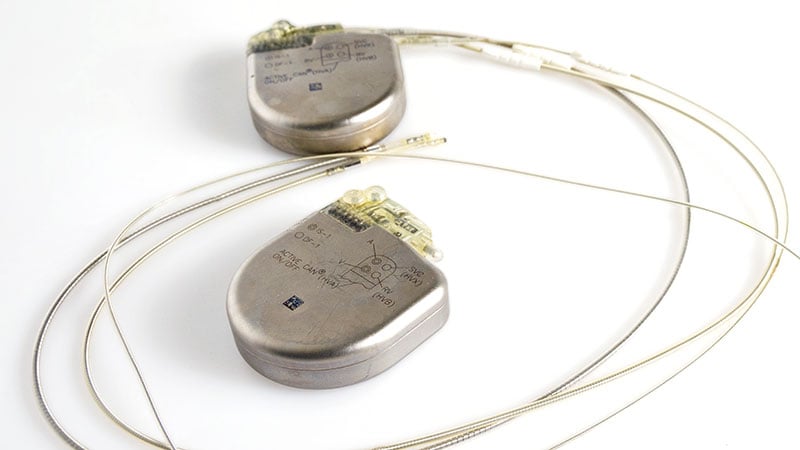TOPLINE:
Models using driving and health data to predict 1-year crash risk after the implantation of a cardioverter-defibrillator showed poor discrimination between individuals who crashed motor vehicles and those who did not. However, such models with good calibration may help guide discussions about crash risk between clinicians and patients.
METHODOLOGY:
Clinical guidelines recommend temporarily ceasing driving after the implantation of a cardioverter-defibrillator; however, these restrictions can result in social isolation or loss of income. Empirical data to inform such driving restrictions are limited.
- Researchers in Canada used population-based administrative data and identified licensed drivers who had a first implantation of a cardioverter-defibrillator between 1998 and 2018 to estimate the subsequent risk for a motor vehicle crash using prediction models.
- The recipients were stratified into two cohorts according to the indication for their implants: those receiving implants for primary prevention of sudden cardiac death (n = 3652; median age, 66 years; 18% women) and those receiving implants for secondary prevention (n = 3408; median age, 65 years; 16% women).
- The outcome of interest was the involvement of the implant recipient as a driver in one or more crashes within the first year after the implantation procedure; crashes considered were those attended by police and/or involving an insurance claim.
TAKEAWAY:
- Overall, 352 drivers (9.6%) in the primary prevention cohort and 270 drivers (7.9%) in the secondary prevention cohort were involved in crashes within the first year after implantation.
- The crash prediction models poorly distinguished between individuals who crashed and those who did not in both the primary and secondary prevention cohorts (c-statistics, 0.60 and 0.61, respectively).
- However, the models showed good calibration for both cohorts (calibration slopes, 1.14 and 1.07, respectively), suggesting that the models could be helpful in guiding discussions between clinicians and patients.
- In the primary prevention cohort, the top predictors of crash were male sex, number of crashes in the past year, and active vehicle insurance in the past year; in the secondary prevention cohort, the predictors were male sex, no history of seizure, active opioid prescriptions, and active vehicle insurance in the past year.
IN PRACTICE:
“Clinicians already use clinical intuition and common sense to identify patients at higher risk of SCI [sudden cardiac incapacitation] , reserving their most strident advice to avoid driving for the individuals they consider to be at highest risk,” the researchers noted.
“Using baseline health and driving data to formally predict post-implantation crash risk and personalize driving restrictions is a strategy that has the potential to strengthen this clinical practice, but our findings suggest this approach is not yet ready to deploy in clinical practice,” they added.
SOURCE:
This study was led by John A. Staples of the University of British Columbia in Vancouver, British Columbia, Canada. It was published online on June 24, 2025, in Heart.
LIMITATIONS:
This study lacked a direct measure of road exposure, which may have affected the model performance. Data regarding several parameters, including the indication for implantation, were missing at several occasions. The researchers were unable to identify the crashes specifically caused by sudden cardiac incapacitation.
DISCLOSURES:
This study received a grant from the Heart and Stroke Foundation of Canada. One author reported receiving a Mentored Clinician Scientist Award from Vancouver Coastal Health Research Institute and a Health Professional-Investigator Award from Michael Smith Health Research BC. Another author reported receiving support from Michael Smith Health Research BC and the British Columbia Emergency Medicine Network.
This article was created using several editorial tools, including AI, as part of the process. Human editors reviewed this content before publication.
Source link : https://www.medscape.com/viewarticle/crash-risk-after-heart-device-implant-still-hard-predict-2025a1000hg9?src=rss
Author :
Publish date : 2025-06-30 19:27:00
Copyright for syndicated content belongs to the linked Source.
